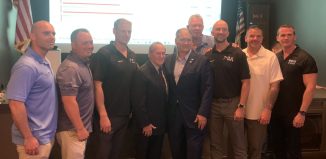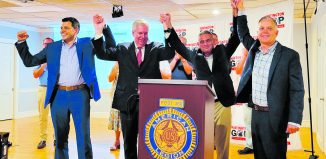Editorial: Support autistic voices beyond Autism Awareness Month
One in 36 children aged eight in the U.S. were diagnosed with the Autism Spectrum Disorder (ASD), according to the Centers for Disease Control and Prevention. One in 36 means that around 32 students are affected by ASD in a high school of 1238 students–the number of students enrolled at Smithtown High School West from 2023-2024. It means that 76 students from kindergarten to sixth grade in the Three Village School District may have trouble socializing, communicating and learning.
The number of adults impacted is less defined, with some adults going undiagnosed, though the CDC estimates 1 in 45 adults in the U.S. have ASD. These individuals are artists. They are educators, technicians, writers, engineers and leaders. They helped make our community, but our community was not made for them.
Often people with ASD have to “mask.” According to the National Autistic Society, people with ASD sometimes mask in order to appear non-autisitic. Autistic people have described masking as “tightly controlling and adjusting how you express yourself based on the real or anticipated reactions of others.”
ASD causes the person to have trouble communicating in social situations. They may exhibit repetitive behaviors called “stimming” or strictly adhere to a fixed routine. They may get overstimulated by certain sensations or experiences. Autism is a spectrum, so it affects everyone in varying degrees.
People with ASD have helped shaped our society in significant ways. Greta Thunberg, for example, is a 22-year old environmental activist who inspired thousands to advocate for environmental protections. She is also on the autistic spectrum.
Renowned actor Anthony Hopkins is also reportedly on the autistic spectrum and was diagnosed late in his life.
Most people have some connection to a person who has ASD. Expanding consideration to the different needs and preferences of autistic individuals does not take much work. Offering different resources and services, like Father Andrew Garnett is doing in holding a sensory-friendly church service, is a great way to show that people with different abilities are valued. We can ask questions–what can we do to help? Perhaps we can communicate differently and avoid sarcasm. We can be cognizant of sensory issues. Most importantly, we can listen. Let’s make an effort to be more considerate to those with ASD and to learn about how we can make our community more inclusive, not just this April during Autism Awareness Month but always.







